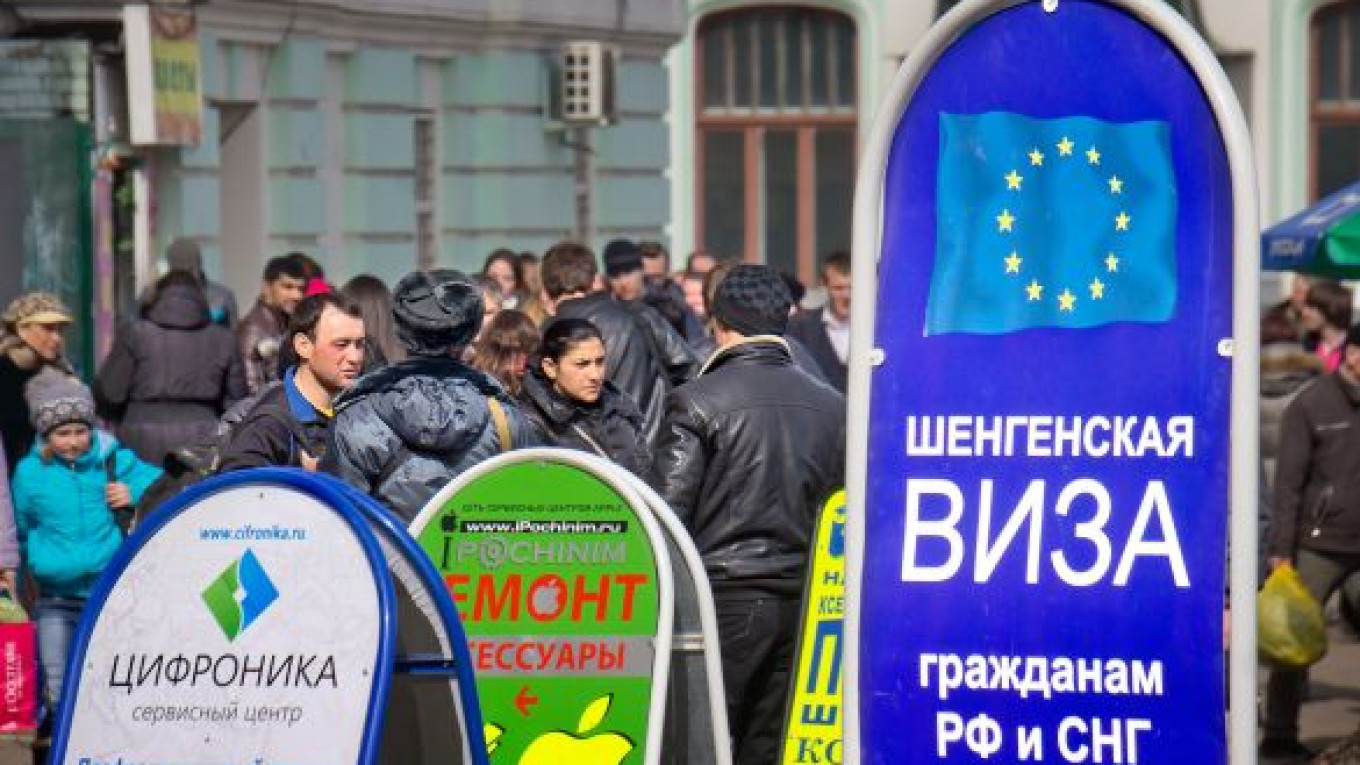Citizens from other former Soviet republics may be barred from entering Russia without foreign-travel passports as early as this year as Russia lobbies for visa-free travel with Europe.
"I think it is necessary in the near future to stop people from coming into the country with documents that don't properly identify the holder," Deputy Prime Minister Dmitry Rogozin said during a visit to a train stop in the Astrakhan region as he toured the rail line between Moscow and Dushanbe, Tajikistan.
Rogozin, whose portfolio includes oversight of border issues, expressed concern that poorly upheld border controls could slow down the process of introducing visa-free travel between Russia and Europe.
"We want to achieve a certain liberalization of relations with the EU, including visa-free travel, but we will never be allowed into Europe if we continue to manage our own borders like this," he said Sunday.
He noted that President Vladimir Putin himself has asked both houses of parliament to implement the new border controls no later than 2015.
"The government is responsible for the implementation, and it is possible that these measures can be taken more quickly, particularly regarding the railroad to Tajikistan," Rogozin said, according to Interfax.
He said the changes on the Tajikistan line should be made within "a couple of months."
On Monday, the Federal Security Service's border control agency proposed closing the railroad connection to Tajikistan altogether, but Rogozin rejected that as “radical,” saying the border issues between the countries should be examined “in a spirit of partnership,” Interfax reported.
Citizens of many former Soviet republics are allowed to travel to Russia with internal-travel documents rather than the standard foreign-travel passports required of travelers to Western countries.
Rogozin was joined in his inspection of the rail link to Tajikistan by Gennady Onishchenko, Russia's chief sanitary official. Onishchenko criticized the dining cars used on the route, saying they were "not intended for the transportation of people" because they used dirty cutlery and lacked refrigeration.
Related articles:
A Message from The Moscow Times:
Dear readers,
We are facing unprecedented challenges. Russia's Prosecutor General's Office has designated The Moscow Times as an "undesirable" organization, criminalizing our work and putting our staff at risk of prosecution. This follows our earlier unjust labeling as a "foreign agent."
These actions are direct attempts to silence independent journalism in Russia. The authorities claim our work "discredits the decisions of the Russian leadership." We see things differently: we strive to provide accurate, unbiased reporting on Russia.
We, the journalists of The Moscow Times, refuse to be silenced. But to continue our work, we need your help.
Your support, no matter how small, makes a world of difference. If you can, please support us monthly starting from just $2. It's quick to set up, and every contribution makes a significant impact.
By supporting The Moscow Times, you're defending open, independent journalism in the face of repression. Thank you for standing with us.
Remind me later.


